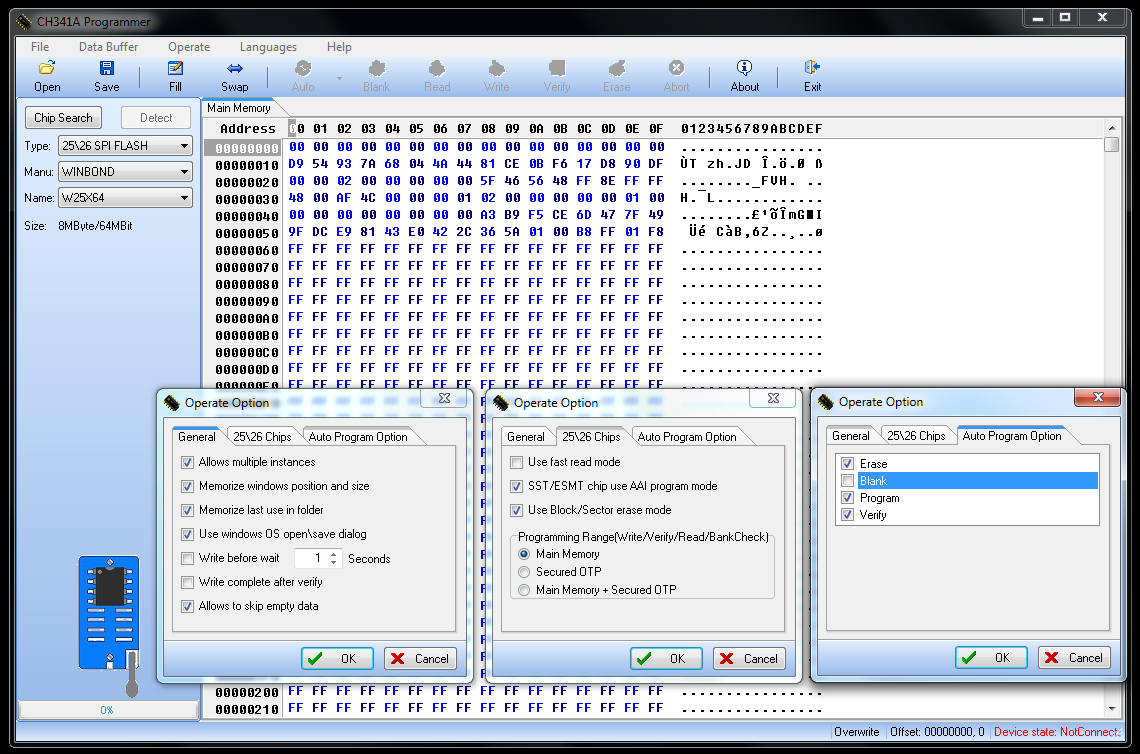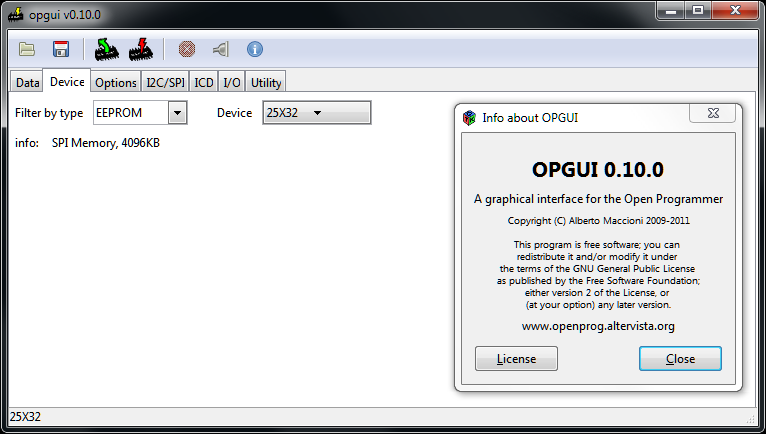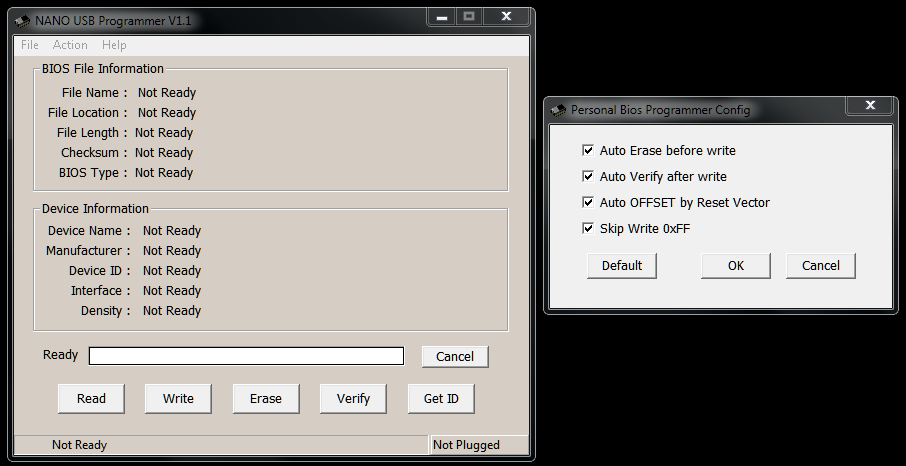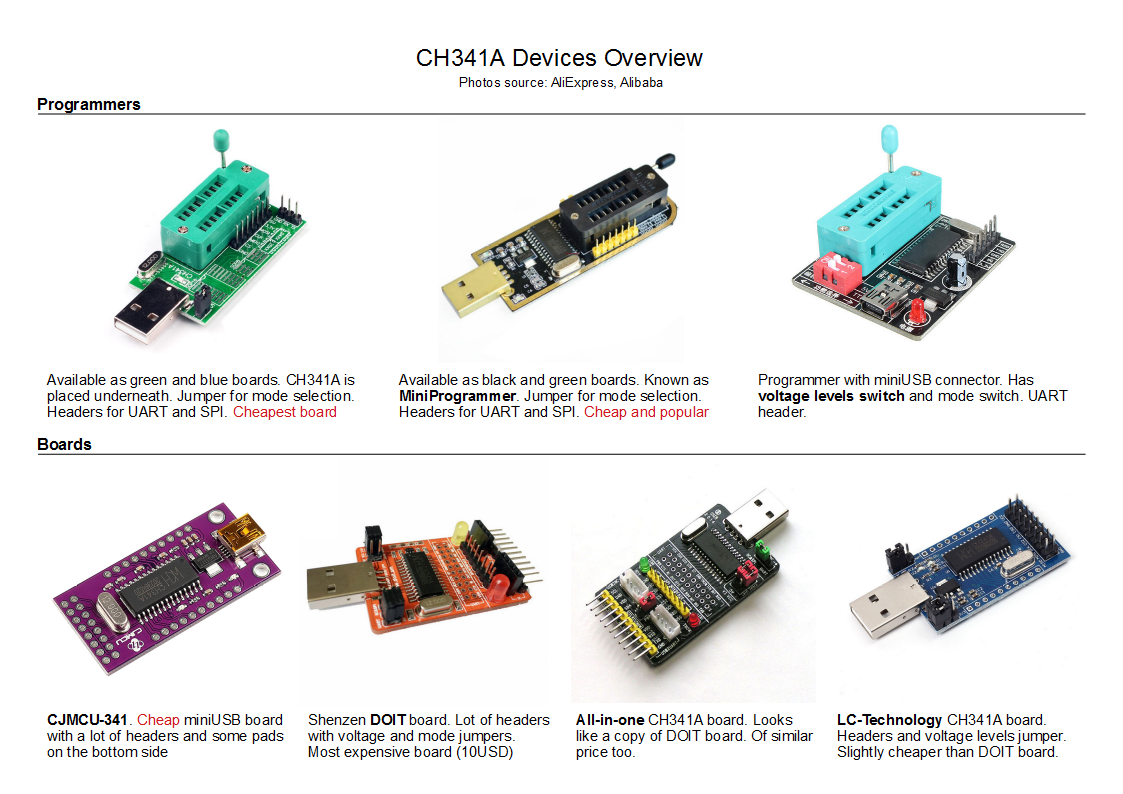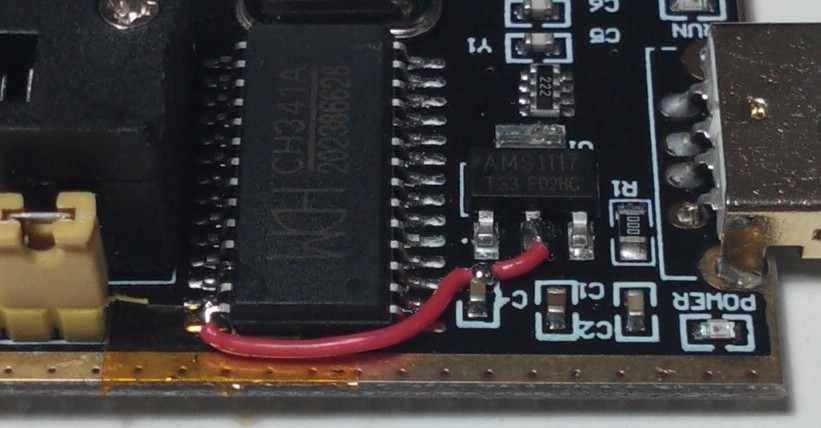@ektorasdj - it’s quicker for me to mod your BIOS, than see what was wrong with your already modified BIOS, so here is newly modified BIOS with all microcodes updated to latest version.
MC Extractor error you mention probably doesn’t have anything to do with two of a microcode CPUID being in the BIOS if it’s the one I’m thinking of, you can put 10 of the same CPUID w/ different platforms or versions and it will not give any error message.
But if you receive an error about duplicate that means there is a issue caused by Cbrom insertion of the new NCPUCode over the old microcodes, leaving a partial duplicate of a microcode in place not an actual duplicate.
In the thread following that issue is explained and how to fix it via hex edit and re-edit w/ crbom as mentioned above by phoenix48. This has to be corrected in hex before the re-edit with cbrom, otherwise the error will remain.
First entry in the FAQ here - [Guide] How to update CPU microcodes (NCPUCODE.BIN/CPUCODE.BIN) on a non-UEFI Award/Phoenix BIOS
Also of note, this issue does not always happen, and did not happen to me this time around editing this BIOS (and I did expect it).
For the mod I used 155 for NCPUCode insertion, 115 for final bin extract/re-insert (OEM7/EXTBIOS.Bin) to correct checksum, and then finally 115 and 198 to recheck the final image.
155 can’t always be used after new microcodes inserted, not sure why and it only happens sometimes, so already in habit of checking final with 115 and 195/198/199
I did create my own new NCPUCode from scratch, but that’s not why it didn’t happen this time since I always do that, I’m not sure but I was expecting to need to correct the “fake dupe” issue and didn’t have to this time around.
Please first try flash in Qflash within the BIOS, if that does not work you may have to flash in DOS via the included FlashSPI from the stock BIOS download, sometimes that is required with modified BIOS.
https://www.sendspace.com/file/j5zqz3https://nofile.io/f/keFSqOTgORq/H67ma-us...ev+1+F8-Mod.zip
Thank you so much @Lost_N_BIOS your bios worked fine!!
I flashed with qflash successfully!(Checksum was 8100 and in stock 7200 but everything is working great).
Also thank you @Phoenix48 for this guide.!
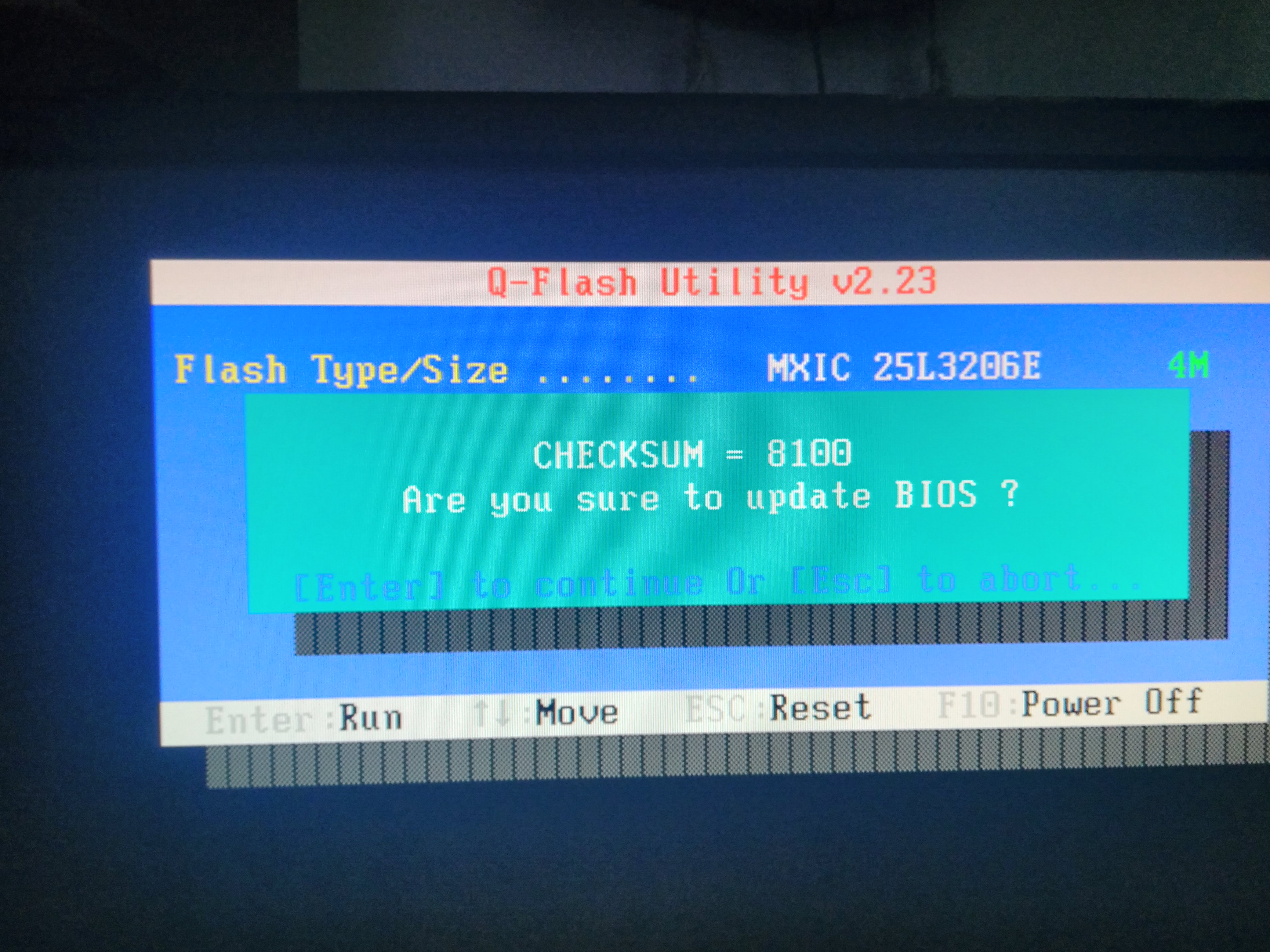
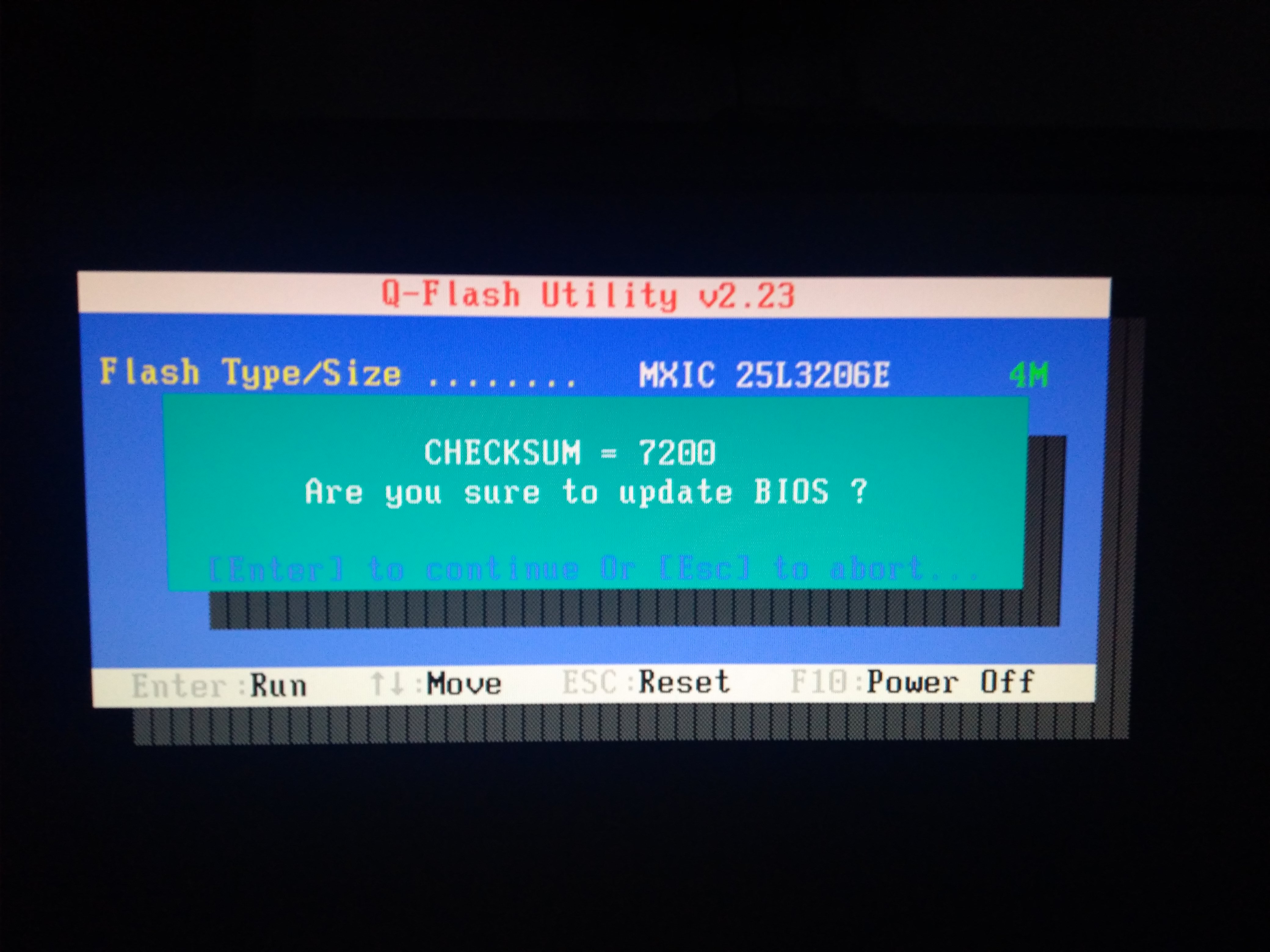
You’re welcome, and thanks for your quick report back, great it’s all success!! Qflash checksum is basic check, if you see digits or text it’s OK, if it’s garbled character then do not flash.
@ektorasdj
I see in your images that you still have Q-Flash v2.23 in your Bios. You may want to update to Q-Flash v2.24. You can download it at the end of the first post.
OK @Lost_N_BIOS thanks !
@Phoenix48 Is there any real benefit to updating to 2.24?
@ektorasdj
Not sure because i don’t know the changelog of that module version. All i know is that Q-Flash do pretty much only 3 things: Flash a Bios, erase the CMOS and erase the DMI data. So in doubt, it is a good thing to assume that some bugs are corrected or methods are improved to do that flashing/erasing the right way and/or there is some more compatibility to be used with more different Bios. It is also possible that an upgrade may also “support more/report more accurately” the kind of Bios chip that is onboard. (For example: In your images, your bios chip # is reported as MXIC 25L3206E)
Because flashing is such a critical action, i personally don’t take any chances and use always the latest in my Bios.
Upgrading Q-Flash is easy if you chose to do so. Simply replace the SBF.BIN module with CBROM155.
@Phoenix48 Your comprehensive answer covered all of my questions, thank you. I will update it later when i have time. Best forum with the best people!
@Lost_N_BIOS
No one of recovery methods worked. Hard to understand why exists so many possibilities to recover dell machines…
And why does not work the official description from Dell support site.
@Girjaman - does those methods work with Dell not modified BIOS files, did you test? If yes, then it’s possible those methods only work for specific signed un-modified Dell files.
If no, then it could be your USB stick, sometimes you have to find right one, smaller and cheaper is usually better for these kinds of situations (FAT32 formatted always, file in root of USB)
You’ll have to either wait for Dell to release new BIOS, or get Ch341A flash programmer and SOIC8 text clip jumper cable
@Lost_N_BIOS - Yes, I did also try with untouched/original bios files from Dell. After my vacation try to find another USB stick, but not easy nowdays to find - smaller than 4GB- one…
The most deplorable thing that Dell removed from bios update roadmap - I mentioned earlier -my E5420 a couple of days ago, without any comment… I wrote to Dell Community, waiting the answer…
Time to order a CH341A programmer then and stop waiting on Dell 
@MiesMosel
I believe you, I am still rookie in this field and learning every day something new. As wrote above to @Lost_N_BIOS , I deleted the wrong files… (unfortunately).
Where do you suggest to find a detailed guide about bios programming? Or any recommendation?
Lost_N_BIOS earlier extracted my Dell E5420 Latitude bios and updated the sandy MCs, but without programmer it cannot be rewritten. Telling the truth, first I want to fix my son’s mobo, and maybe after will exam my Dell laptop’s options…
Hello Girjaman,
I’m rookie, too. 
What do you mean by “BIOS programming”?
1. Editing the BIOS files? → Win-Raid is super … and there are other forums or sources in the internet.
2. Flash BIOS with CH431A or any other hardware tool? → I found some versions of CH341A Programmer Software (v1.13, v1.17, v1.18, v1.29) for Windows.
For/Linux/Android/MacOS, there are some other tools, too. Try first to find YT-videos for “CH431A Programmer”.
@Girjaman - probably alignment issue as @MiesMosel mentioned, or FIT maybe, you should be able to use both Ivy and Sandy, people say same for Coffee/Kaby/etc today too, and if don’t correctly you can have both or all three too when people say only two.
Some mods done break/bad if using tools like UBU, AMI Tools etc, some have to be done by hand, others by hand then rechange something with another tool like UEFITool etc. So, that user could be correct, or just could have been trying incorrect methods back then, making it seem like fail if you tried to use both.
I don’t buy that at all, and see no valid reason why only SB or Ivy would be required or safe/dangerous, I think just bad advice, method, or tools used back when he posted that.
Let me dig into my boards and see if I have one of these around now for testing, if I do I will let you know and I will test both myself.
* Checked, and I don’t have anymore, P67 one either  Once your programmer arrives it will be safe though, I can send you BIOS to test with both and if bad then you can reprogram working BIOS instead.
Once your programmer arrives it will be safe though, I can send you BIOS to test with both and if bad then you can reprogram working BIOS instead.
If you want to test that I mean, I think it would be no problem, other than maybe overall size of all microcodes included might limit things, but that’s a different issue and shouldn’t be stated as only Ivy or SB, but I doubt that would be what caused them issue or they would have said probably.
All hard to say without testing myself but it’s something I’ve never seen on any board BIOS from that era.
Yes, you need to order cheap CH341A flash programmer and SOIC8 text clip cable, so you can start programming BIOS when you want instead of waiting/trying to find way to flash which is risky if forced sometimes.
@Lost_N_BIOS
CH341A flash programmer and SOIC8 text clip cable are on the way 
@MiesMosel
On bios programming I mean reflashing bad chip to work again. I do not know any version of CH341A Programmer, so first we have to get acquainted. Than trying to flash with modded bios. The methods are the same. Regarding my Dell, Lost_N_Bios made a modded bios.hdr file, I should find out how to flash it to the chip.
Guys, as soon as I get the tools, I come back 
I don’t know if HDR can be programmed in like that with programmer, you’ll have to research that one.
I had a quick look, and I think I will need to send you some other files from within the HDR file. Let me find the BIOS I sent you so I can extract that file for you to use on the programmer.
Will update here with new file shortly - here is file to use with programmer - https://nofile.io/f/XPUBJwH8oNA/section_0_A.14bin.zip
Sorry, should have extracted this from the HDR for you before now, but I didn’t know until looking up using HDR w/ programmer!
You might be able to use that with AFU or FPT
It should be possible for CH341A, if your HDR-file contains the whole Dell-BIOS.
This looks under Windows like a normal flash-tool combined with an hex-editor:
There are also some flash tools for Linux, Android or MacOS.
The only requirement is to know the Version of BIOS chip, you wanna flash.
So look first on surface of the chip. If there’s a product label with BIOS version number, then you have to carefully remove it. Don’t scratch the surface.
There should be manufacturer and model designation.
Looks like I will get the 2nd one (mini programmer). On Saturday I will go for a short vacation with my family and come back 30 of August, if programmer does not arrive until tomorrow, only next weekend will have time to care about it. I am very-very curious about possible result as you guys gave me so many bios versions 
We’ll get you sorted out on both boards for sure once your programmer arrives and you have time to play. I hope you’ll be willing to test Ivy/SB codes at same time for me on the Z68 too once you’ve seen you can use programmer and safely fix anything
@Girjaman
I’ll get the same programmer (black version) & clip cable in the next days.
But there are a lot of questions to do it right. Maybe we should open a new thread for that in the future.
If we know the chip, then we also have to know the voltage (5V or 3.3V or ??) for that.
For our programmer there’s a voltage mod to 3.3V, if nessessary. It depends on BIOS chip version.
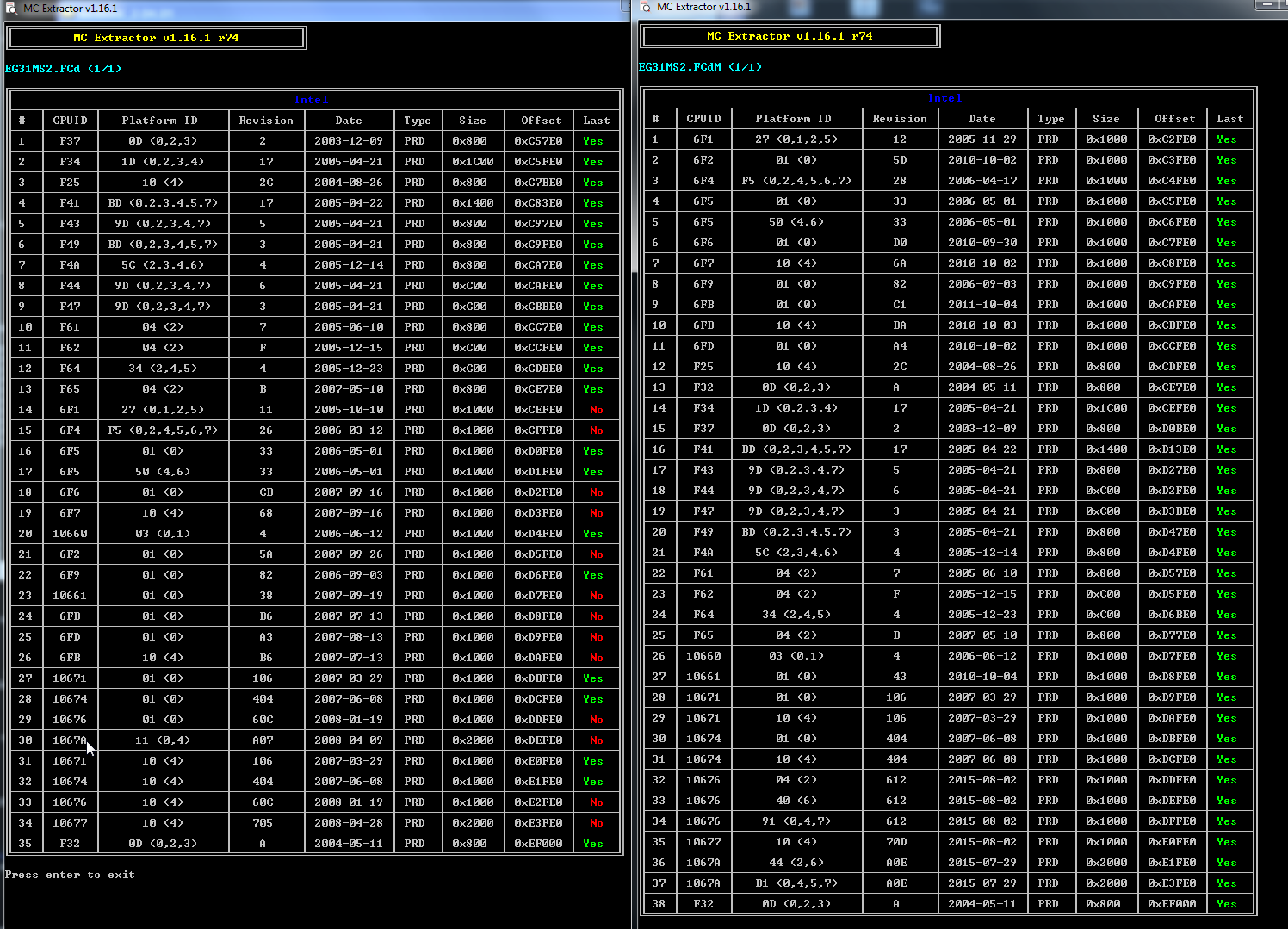
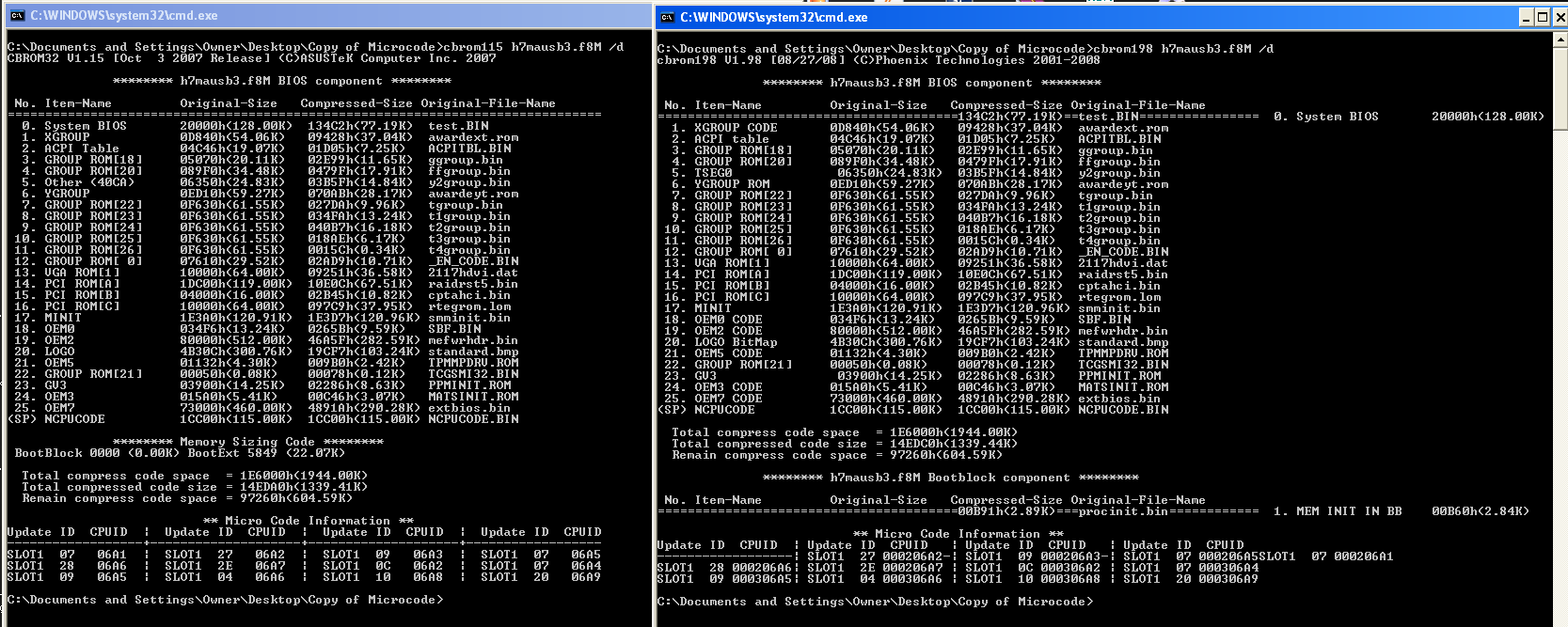



 Once your programmer arrives it will be safe though, I can send you BIOS to test with both and if bad then you can reprogram working BIOS instead.
Once your programmer arrives it will be safe though, I can send you BIOS to test with both and if bad then you can reprogram working BIOS instead. 